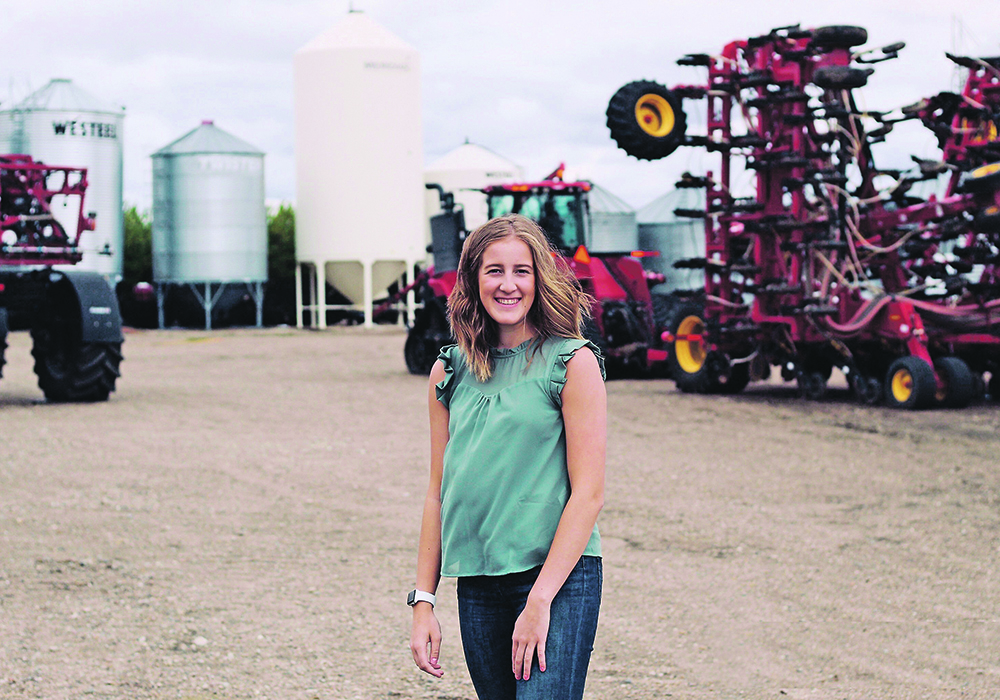A Grade 10 student from Saskatchewan explores agriculture’s relationship to fertilizer and opposition to the practice
Sydney Joyce is a Grade 10 student from North West Central School in Plenty, Sask., who is enrolled in the Sun West Distance Learning Centre’s Agriculture and Sustainable Food Production online course for grade 10 and 11 students. This essay was her final project for the course.
Fertilizer is defined as “a substance added to soil to make plants grow more successfully.” This chemical or natural substance has a major role in creating a sustainable state of food production in the world of agriculture. Without the use of fertilizers, food production is believed to be incapable of supporting the world’s population size.
Read Also

Trade war may create Canadian economic opportunities
Canada’s current tariff woes could open chances for long-term economic growth and a stronger Canadian economy, consultant says — It’s happened before.
In my essay regarding the controversial topic of the use of fertilizers, I will be addressing the following: the historical context of the use of fertilizers and cause of this worldwide divide, the influences of the issues on the world, and what needs to be done for a positive change to happen within this topic.
It is believed that the use of fertilizer in agriculture is a practice that has been recently adopted due to new sciences available. However, what many don’t know is “that early farmers were using manure to fertilize their crops as long as 8,000 years ago.”
The earliest use of manure on fields was when farmers let their cattle graze through the fields after they were harvested. Once they seeded that particular field in the spring and were ready to harvest it in the following fall, they noticed that it had higher success rates and better yields compared to fields that did not have cattle graze through.
The reason why their fields had such high levels of success and better yields is because manure has extremely high concentration levels of nitrogen isotopes.
Nitrogen is important because it provides plants with their energy to grow and has chlorophyll molecules that give plants their green colour, which allows them to create food through photosynthesis.
Once science started to advance, commercial fertilizers became more of a common practice, although many people were against the idea of using them on crops and consuming products grown with them.
Many are against the use of them because they believe they cause birth defects and affect the environment. These thoughts and beliefs are the reasons why our world has such a controversial divide on the use of fertilizers in agriculture.
There are many influences that have caused this worldwide controversy on the use of fertilizers. For example, researchers have discovered a condition called “blue baby syndrome,” which is described as “infants whose skin tissues are low in oxygen, which is why their skin appears to be blue or purplish in colour.” This is believed to occur after the infant or mother drinks water that contains nitrogen runoff.
Another idea that has caused this worldwide controversial divide is the idea that all types of fertilizers are unsafe to use, although fertilizers can be natural or commercial and are completely safe to use either way.
Using commercial fertilizers means that you are adding phosphate, nitrogen and/or potassium to the soil. These are already found in the soil and you would be consuming them in the food you’re eating.
The “Free The Soil” campaign has had a major influence on people’s views on the use of fertilizers in agriculture. It hopes to take down one of the biggest fertilizer plants in the world, which is owned by Yara and produces ammonia and urea in Brunsbüttel, Germany.
The group believes that “synthetic fertilizers are a major contributor to climate change. They also impact soil biology and are contributing to soil degradation around the world.”
This controversial divide needs to be resolved so that we can continue to create sustainable agriculture for future generations.
Global issues are something that I believe can be solved through global involvement. In order for this controversial divide to be solved, those who are against the idea of using fertilizers in agriculture need to become educated on the topic. Farmers can’t feed the world population size of 7.7 billion people alone. We need to use fertilizers in our fields so we can see success in the crops we grow.
Without fertilizers our crops would not produce their full yield potential and would most likely fail because of a lack of nutrients in the soil.
In my own opinion, the practice of using chemical based fertilizers is not something people should be against because “today, an estimated one-third to one-half of our global food supply is directly linked to the use of commercial fertilizers.” Without them, the world would starve because of our growing population and high food demand.
Consumption of products grown with commercial fertilizers is proven to be safe for many reasons, including the fact that everything we consume has some form of nitrogen in it, organic or commercial.
Also, before grain can be sold to companies for consumer consumption, it must be cleaned extremely well. So, even if it were grown with a chemical, it would still be cleaned the same way as grain that was grown organically.
The global controversy of fertilizers can be resolved through understanding what needs to happen to create sustainable agriculture. Those who are against the idea of using fertilizers can become educated, knowing the history of the use of fertilizers and when it originated.
This knowledge will educate society on the influence of conditions that have caused people to turn against fertilizers, and why global involvement is so important in solving the issue.
In conclusion, sustainable agriculture is only possible through the use of fertilizers.















